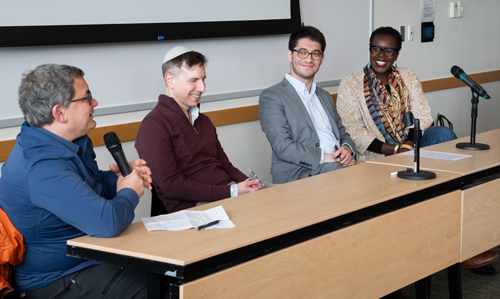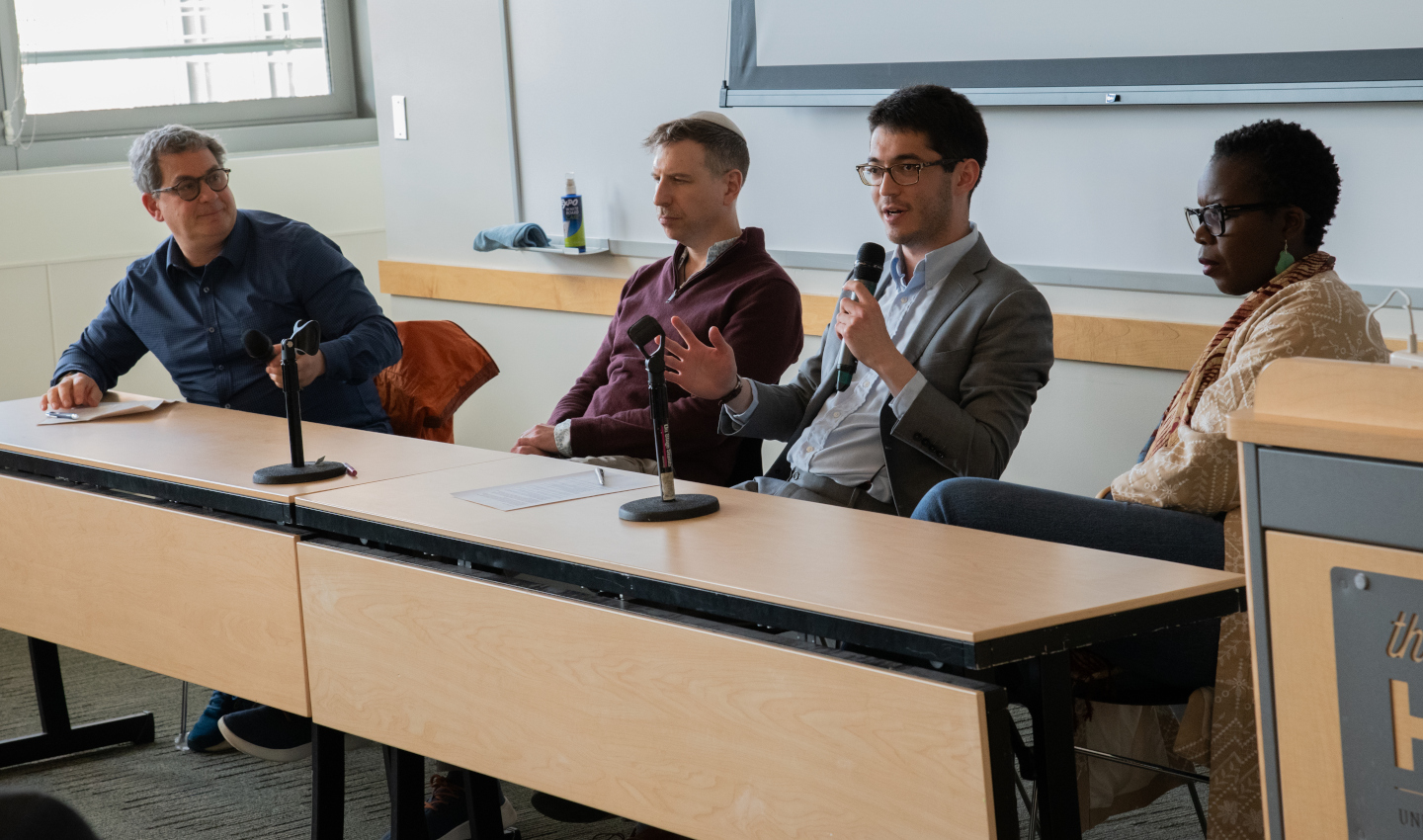At a time when artificial intelligence is reshaping how information is created and shared, scholars gathered recently at the University of Washington to confront a critical question: How will AI affect how the Holocaust is remembered?
Led by Ben Lee, an assistant professor at the iSchool, “AI and the Future of Holocaust Research and Memory” brought together 15 scholars for two days of closed discussions, followed by a public symposium on May 20. The event explored how AI tools might shape the way Holocaust history is preserved and shared.
“The goal has been trying to use this as an opportunity to bring scholars together and to chart new research directions,” Lee said.
The symposium featured four panels and a UW faculty roundtable, examining topics such as the ethical use of AI-generated content in archives and museums and the risks of decontextualized storytelling.

One panel sought to find the responsibility of libraries, archives and museums in presenting AI output. Scholars warned that most AI content is not labeled and can mislead viewers by presenting generated visuals as historical fact. “Speculative images speculate history,” one speaker noted, sparking discussion about the ethics of using such content for education and commemoration.
Noah Shenker, associate professor of Jewish Studies and Film and Media Studies at Colgate University, led a panel exploring AI’s role in accurately and authentically preserving Holocaust testimony.
He focused on the case of Pinchas Gutter, a Holocaust survivor whose story is featured in Dimensions in Testimony, an interactive project that allows users to pose questions to a virtual Gutter and receive AI-selected responses based on pre-recorded interviews.
In the user-driven experience, the participant asks Gutter a question and the system registers the answer it best sees fit. Shenker points out that this computer registration of answers does not always provide the actual response Gutter would have to the question.
“They're taking versions of his story … and that the system tends to point users towards the shorter, more compressed stories, decontextualizing,” Shenker said.
He shared a personal example of when he asked Gutter if he had returned to the Nazi concentration camps with his family and Gutter responded with a story about visiting with his grandchildren. But when the same question was posed to the AI version, the answer was different.
“Yes, I went with my parents and my sister, and we were separated, and they died and I survived,” Shenker said. “They were satisfactory answers as much as they were decontextualized.”
The final panel focused its discussion on the current state of AI and what is in store for the future of Holocaust memory. The event concluded with a UW faculty roundtable. Lee emceed the conversation and was joined by Temi Odumosu, assistant professor in the Information School; Noah Smith, Amazon Professor of Machine Learning in the Paul G. Allen School of Computer Science and Engineering; and Noam Pianko, Samuel N. Stroum Chair of Jewish Studies and Professor in the Jackson School of International Studies.
Panelists discussed the role of scholars in guiding ethical AI development and urged attendees to critically examine the origins of AI’s data, arguing the bias comes from the human biases it pulls data from.
“It's a byproduct of human cultural existence and all the biases that we have in our culture get written down in the data,” Smith said. “And if the data is biased because it's sampled from some cultures and not others, that's going to be reflected too.”
The symposium was co-sponsored by the United States Holocaust Memorial Museum, the UW Stroum Center for Jewish Studies, the UW Simpson Center for the Humanities and the Information School’s Center for the Advancement of Libraries, Museums and Archives.
“I feel like [the event] was fantastic,” Lee said. “It's been many hours of us coming together and presenting, but even from the beginning of where we started to where we are now, it feels like we really did come together and have some really insightful, multidisciplinary conversations.”
